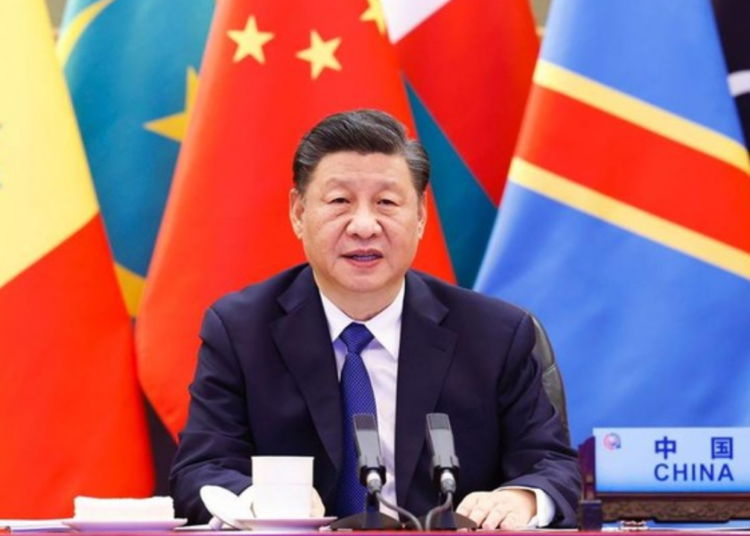The Communist Party of China(CPC) has been at the centre of the leadership of a new and transformative experience of the People’s Republic of China since its formation in 1921. The party strengthened the nation’s political trajectory towards independence from all forms of colonialism and imperialism in 1949 with the creation of a new China under the inimitable Mao Zedong.
The party’s philosophy is based on strict discipline and dedication to social construction of reforms and the opening up that commenced in earnest during the time of President Deng Xioaping in the 1978, which has transformed China into one of the strongest economies in the world and the biggest manufacturing hub of the world in just over 40 years.
According to Professor Han Donglin of the Renmin University in one of his lectures to visiting African and Asian journalists “the central leadership of the CPC is focused on the supremacy of the people and how to ensure social good for them in the largest possible scale.” This ‘people first’ doctrine is reflective of the illustrious history of the party, which emerged at a time the people of China were entangled in a web of very suppressive and oppressive foreign powers that were bent on keeping the nation down. The Chinese model of democracy today is unique because it has ‘Chinese characteristics’, an embodiment of the People’s collective aspirations irrespective of their diverse identities with the CPC as the central driving force.
Also in another lecture, Professor Zhu Yan of the Department of Teaching and Research of CPC Party History, submitted that through creative and imaginative leadership, the CPC led the people through their most difficult time under the Koumintang of Chan Kai Sheik. Despite heavy backing by the powerful West, the CPC army prevailed against imperialists and other backward domestic forces during the Chinese civil war that ended in 1949. “This feat was achieved because the CPC had the will and showed the way and the people believed in their ability as they were strict against corruption and all forms bad elements in their system”, he said.
In a little over 40 years, the CPC has led China to self-efficiency in scientific research and development with a productive capacity that has built enormous industries and the commercialisation of its products and services with global competitive edge. The CPC has made an unprecedented achievement in human history when it employed the use of modern technology to improve the efficiency and quality of governance and life of the people. This has led to rapid economic development and improvement in the material conditions of the people to enhance their status and dignity.
The CPC has lifted over 800 million people out of poverty in the last 40 years and under the current President Xi Jinping there is already an ambitious programme to expand the skill development and create a China that will lead in the 4th Industrial Revolution. Everywhere one goes to in China and every institution one visits, there is a remarkable impression President Xi has made in inspiring institutions to promote investment in human development especially in vocational education and skill development.
Through varied exchange programmes, the Chinese government every year invites thousands of people from Africa, Asia Pacific, South America, the Caribbean countries, and the Middle East to participate and share experiences of the Chinese economy, politics, business, trade and investment, agriculture, mines and industry, medicine, health, tourism, port development, infrastructure development digital economy and others. It is the virtue of friendliness that the Chinese have enjoyed as a component parts of their culture to offer the rest of the world a new vision for a new world and the prospect it offers for a collective well-being devoid of imperialist manipulation and exploitation.
The China International Press and Comunications Centre (CIPCC) is one of the agencies that has organised a number of programmes to deepen the relations between China and other countries in the quest for a shared prosperity and to help each other in the face of injustice. The CIPCC is currently running this programme in Beijing, the Chinese capital and other provinces and cities across the country with profound results. The CIPCC projects the philosophy of the CPC, which welcomes countries and creates an agenda of mutual help against poverty and other harsh conditions through innovation, science and technology.
China has also reached out to the world through the Belt and Road Initiative (BRI) established in 2013 for interconnectivity. This initiative now has about 152 countries as members and about 39 international organisations. Nigeria has been a beneficiary of this initiative as Chinese construction companies have built massive road projects in Nigeria, including the Lekki Deep Sea Port that has been constructed by the China Harbour Engineering Company (CHEC). This port will make Nigeria a maritime hub in Africa and place it on prime position to play a vital role in the African Continental Free Trade Agreement (ACFTA).
Nigerian political system needs to borrow some attributes from China. First, party politics must be people-centred, ideology-driven and vision -inclined and not the current symbolic arrangements, where politicians see political parties as only a vehicle to capture power and appropriate the resources of the state for personal gains. The Nigerian state has had uninterrupted democratic order since 1999, yet democracy has failed to deliver development. The economic indices in Nigeria are not good at all despite the enormous resources the country is blessed with. Something is fundamentally wrong.
It is only a redefinition of politics and leadership motives along total development strategy that can help Nigeria rise to the occasion and take its rightful place within the comity of nations like China did. Nigeria can do it, Nigeria can overcome its current challenges and Nigeria has the potential to rule the world as China is doing.





